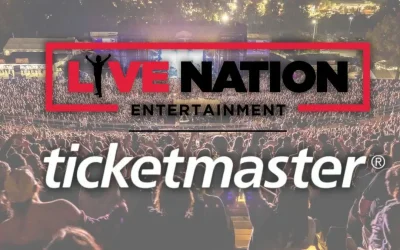The high-stakes antitrust case against Live Nation Entertainment and its Ticketmaster subsidiary is emerging as a key test of the Trump administration’s approach to monopoly power, with new reporting highlighting sharp divisions inside the White House over whether to pursue a breakup of the concert giant or cut a deal.
According to The Free Press, President Trump’s Department of Justice has stuck with the lawsuit first filed under President Biden, joined by nearly 40 states, accusing Live Nation of maintaining an illegal monopoly across concert promotion and ticketing. A trial is scheduled for March 2026. The case is widely seen as the most serious challenge yet to Ticketmaster’s dominance, which covers roughly 80 percent of major venue ticketing.
But the Free Press report describes feuding factions within the administration: some populist figures, including Trump antitrust appointees Gail Slater at DOJ and Andrew Ferguson at the FTC, are pushing aggressive enforcement, while Trump-aligned lobbyists and consultants are working to steer the case toward a more favorable settlement.
Live Nation’s Political Playbook
Live Nation has not been passive in this fight. The company brought on Kellyanne Conway as a consultant last year, with sources telling The Free Press that she personally met with DOJ officials to advocate for settlement. It also added Richard Grenell, a longtime Trump ally who now leads the Kennedy Center, to its board of directors — a move many in the industry interpreted as an attempt to curry political favor at a precarious moment as TicketNews reported in May.
Critics inside and outside government see a pattern echoing Live Nation’s broader “Trump playbook,” previously detailed by TicketNews: millions in political contributions, venue investment announcements tied to White House orders, and high-profile board appointments designed to ingratiate itself with the administration. Those tactics are drawing increasing scrutiny from lawmakers and state attorneys general, who have openly warned against political interference in antitrust enforcement as we covered earlier this month.
Evidence of Tougher Enforcement
Even as Live Nation hopes to blunt its exposure, recent events show the Trump administration has not abandoned high-profile enforcement altogether. Just last week, Amazon agreed to pay $2.5 billion to settle an FTC case over its Prime subscription practices. Amazon founder Jeff Bezos had spent years cultivating ties with Trump, but that did not prevent regulators from levying a record civil penalty and ordering refunds to millions of consumers – though many of the changes agreed to had been made well ahead of the settlement.
“Amazon and our executives have always followed the law and this settlement allows us to move forward and focus on innovating for customers,” Amazon spokesperson Mark Blafkin says in a statement shared with TicketNews. “We work incredibly hard to make it clear and simple for customers to both sign up or cancel their Prime membership, and to offer substantial value for our many millions of loyal Prime members around the world. We will continue to do so, and look forward to what we’ll deliver for Prime members in the coming years.”
That precedent suggests that even politically well-connected companies may face substantial consequences if cases align with the administration’s populist narrative. In Live Nation’s case, both the DOJ antitrust suit and the FTC’s recent consumer-protection complaint allege systematic practices that inflated prices and restricted competition — claims that resonate broadly with fans tired of high ticket costs and hidden fees see TicketNews’ breakdown of the FTC lawsuit here.
Mounting Risks on Both Sides of the Atlantic
Ticketmaster’s business practices are now under scrutiny globally. In the U.K., the Competition and Markets Authority secured binding commitments earlier this month after the chaotic Oasis tour onsale, forcing Ticketmaster to disclose clearer pricing and eliminate misleading “platinum” labels covered in detail by TicketNews.
In the U.S., the FTC’s September lawsuit alleges the company “turned a blind eye” to high-volume brokers while profiting on resale markups, even as the DOJ presses for structural remedies up to breaking off Ticketmaster entirely as TicketNews previously analyzed.
As TicketNews has reported, the exposure is enormous: consumers paid more than $16 billion in mandatory fees on Ticketmaster sales from 2019–2024, while potential BOTS Act penalties for broker-enabled sales could stretch into the tens of billions. Live Nation executives, meanwhile, have begun openly discussing the possibility of losing exclusivity contracts with venues if the DOJ case succeeds see our coverage of CFO Joe Berchtold’s remarks.
A Defining Test Ahead
For the Trump administration, the Live Nation case is more than just another corporate lawsuit — it is a defining test of whether “America First Antitrust” means structural change or business as usual. For Live Nation, it is an existential threat to its vertically integrated empire.
If regulators follow through, fans could see the breakup of a monopoly that has dominated ticketing for more than a decade. If political maneuvering prevails, the case could settle quietly — leaving consumers and artists facing the same system of high fees and limited competition that sparked the lawsuits in the first place.
Either way, the next six months will show whether the White House is siding with “Team MAGA” or “Team Live Nation.”



